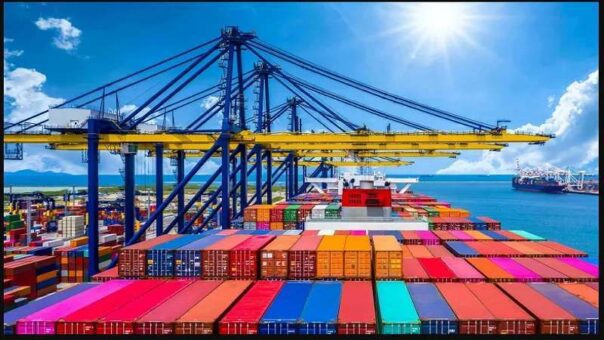Karachi, July 21, 2023 – Pakistan has experienced a substantial 44% decline in imports from China during the fiscal year 2022-23, according to data released by the State Bank of Pakistan (SBP).
The reduction in import expenditures to the tune of $9.66 billion during the fiscal year, as compared to $17.30 billion in the previous year, can be attributed to the country’s measures to support its balance of payment.
READ MORE: Pakistan’s Foreign Exchange Reserves Surge to $14.07 Billion, Boosted by Foreign Inflows
Pakistan heavily relies on imports from China, making it the largest source of foreign exchange earnings for the nation. The significant decrease in import payments to China is the result of restrictions imposed by Pakistan on unnecessary and luxury items to bolster its balance of payment position.
These restrictions have proven effective in curbing import payments substantially during the fiscal year under review. The Pakistan Bureau of Statistics (PBS) reported a sharp decline of 31% in the country’s overall import bill, which amounted to $55.33 billion during FY23, compared to $80.14 billion in the preceding fiscal year.
READ MORE: IMF Warns of Exceptionally High Economic Risks in Pakistan
China has been a major trading partner for Pakistan due to its geographical proximity and the presence of a Free Trade Agreement (FTA) between the two nations. However, the imposed curbs during FY23 have resulted in a reduction of China’s share in total imports to 17%, down from 22% in the previous fiscal year.
The decline in imports from China is a noteworthy economic development that reflects Pakistan’s proactive efforts to manage its trade balance and strengthen its financial position. By limiting imports of non-essential goods, the country aims to bolster its foreign exchange reserves and create a more sustainable economic environment.
READ MORE: Foreign Direct Investment Plunges by 25% in Pakistan During FY23
Experts believe that these measures are crucial to improving Pakistan’s economic resilience and reducing its dependency on imports, especially from a single trading partner. The government’s focus on achieving a more balanced trade scenario is expected to lead to the development of domestic industries and an increase in exports, ultimately supporting long-term economic growth.
As the fiscal year progresses, policymakers and analysts will closely monitor the impact of these restrictions on the country’s trade dynamics and overall economic performance. The goal is to strike a delicate balance between managing imports and promoting local industries while continuing to nurture valuable trade relationships with partners like China.
READ MORE: Pakistan’s Current Account Deficit Narrows Sharply by 85% to $2.56 Billion
Despite the short-term challenges, Pakistan’s efforts to implement responsible economic policies are indicative of a commitment to building a stronger and more sustainable economic future.
